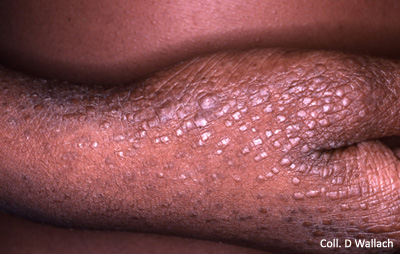A Neurological Issue
When nerves become damaged or compressed through injury or aging, they can respond by sending the brain an incessant “scratch me!” message, says Arianne S. Kourosh, MD, assistant professor of dermatology at Harvard Medical School. This can affect any body part, but most commonly occurs on the arms, middle of the back, or scalp.
Inflammation
During bouts of internal inflammation brought on by allergies, autoimmune glitches, or a reaction to medication (like statins, opiates, or even herbal supplements), the body releases defensive molecules that set off varied responses—including itchiness.
Cortisone creams or oral antihistamines can extinguish the flame of the itch; drugstore moisturizers and protectant skin creams can prevent it from reigniting. If your medications are to blame, a new prescription may be all you need.
Anxiety
Intense stress can influence nerve function, which can lead to pain or a relentless itch.
Treatment for this type of itch addresses both the mind and the body and can include biofeedback, meditation, or acupuncture, as well as cognitive-behavioral therapy and medication.
Disease
A range of unrelated conditions that affect the kidney, liver, thyroid, and blood all may trigger obsessive scratching. So can autoimmune disorders, diabetes, and skin cancer.
If you have one of these issues as well as an itch, see a dermatologist, who may prescribe ointments or oral treatments.
Insect Bites
When a mosquito gets you, your immune system releases chemicals, including histamine, that prompt redness, swelling, and itching.
If the bite stays puffy and inflamed for a prolonged period, you’re likely having a heightened allergic skin reaction. A cortisone cream or an over- the-counter antihistamine should help.
Constant scratching may delay healing, so try holding an ice cube or pack on your bite. Cold temperatures make it harder for the itch-triggering nerve to communicate with your brain (heat has the opposite effect)—plus, your scratch-happy fingers will stay safely occupied.



Leave a Reply